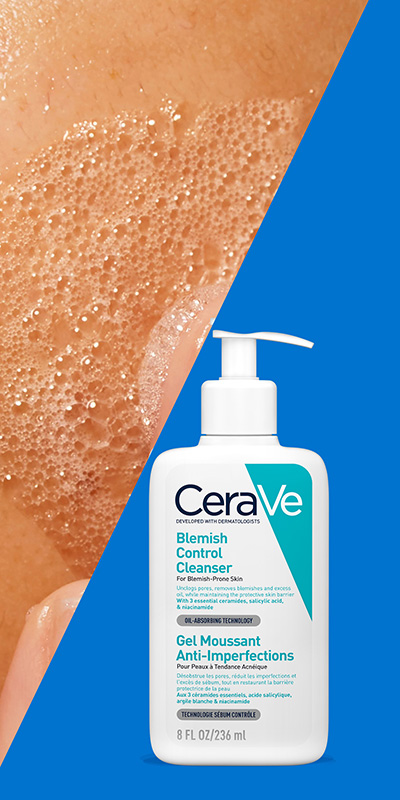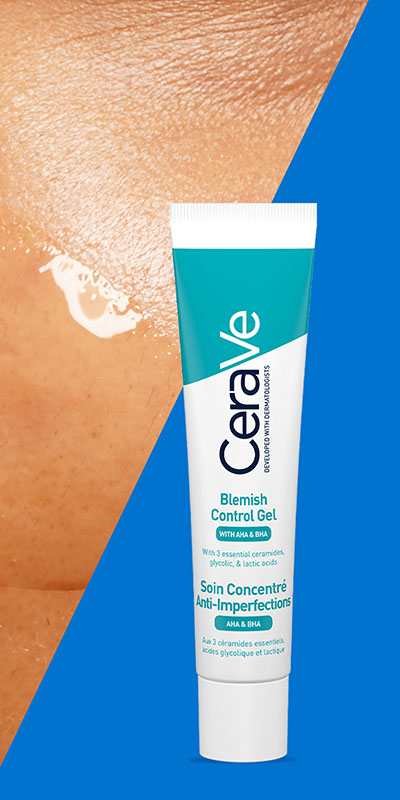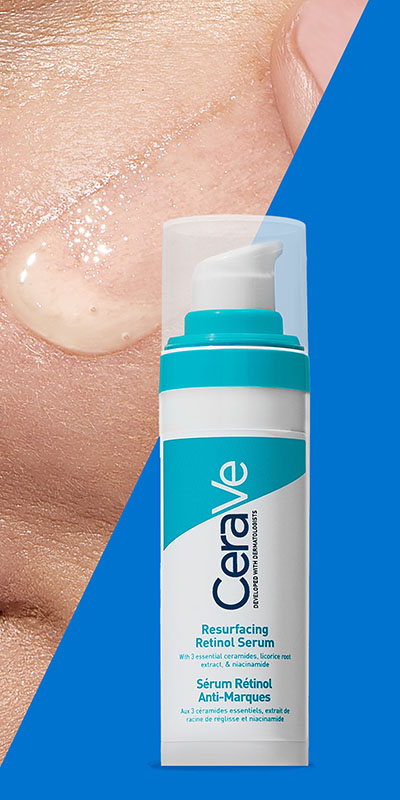ACNE 101 : Clear it up like a derm
Struggling with acne-prone skin? You're not alone. Welcome to your crash course on clearer skin with CeraVe! Our products are developed with dermatologists containing actives to treat acne effectively with 3 essential ceramides that will not disrupt your skin barrier. Take a seat, crack open your notebook, and listen to our dermatologist experts as they debunk acne myths and deliver the facts you need for healthier skin.
ACNE MYTH #1: You shouldn't moisturise if you have acne.
If your skin is on the oilier side, as acne-prone skin often is, you may feel that moisturising will only make it worse.
Skipping moisturiser can leave your skin feeling dehydrated, which can cause it to produce excess sebum (oil) in an attempt to compensate. This heightened oil production can clog your pores and lead to breakouts. To maintain hydration without aggravating acne, use lightweight, non-comedogenic moisturisers specifically formulated for acne-prone skin.
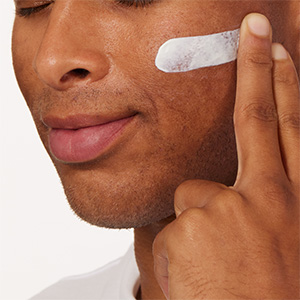
ACNE MYTH #2: You need harsh products to clear skin.
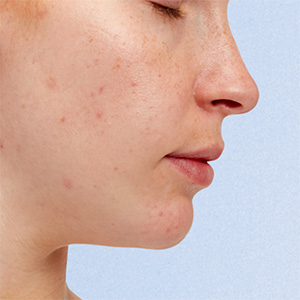
If you have acne, your impulse may be to pile on as many acne-fighting ingredients as you can to clear your skin up quickly.
But stronger doesn't mean better. When it comes to acne, sometimes less is more, and contrary to popular belief, a skin-burning sensation during treatment is not a good thing. CeraVe's products for acne-prone skin are developed with dermatologists to help minimise acne breakout without disrupting the skin's protective barrier.
ACNE MYTH #3: Acne is caused by dirty skin.
Oftentimes, when people have acne, they assume it means their skin is dirty and resort to harsh scrubs for clean skin.
However, over-washing can disrupt your skin barrier and worsen acne. Dirt doesn't cause acne; it's clogged pores from excess sebum, dead skin cells, and bacteria that do. For effective care, wash your face twice daily with a gentle, non-drying cleanser developed for acne-prone skin
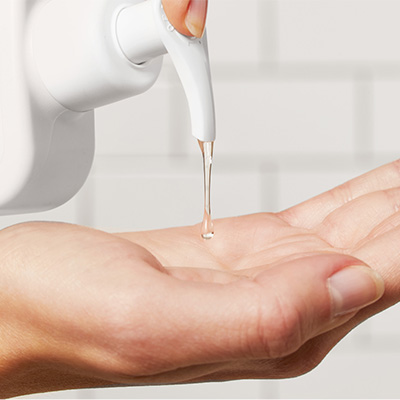
REAL SKIN, REAL RESULTS*
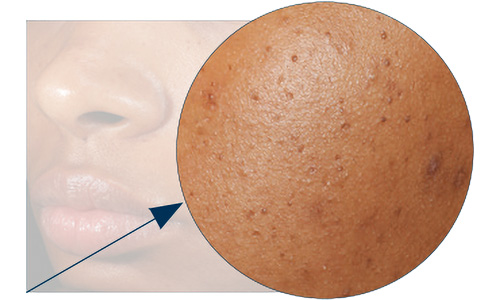

*cosmeto-clinical study of 52 subjects, after 8 weeks of daily usage. Individual results may vary.

*Cosmeto-clinical evaluation: 46 subjects, aged 13-50 with mild-to-moderate acne and normal to oily skin.

**Cosmeto-clinical evaluation, 52 subjects, aged 13-45 with mild to moderate acne and normal to oily skin.

*A cosmeto-clinical study was carried out on 41 subjects after 4 weeks of application once daily.
Step-by-step routine for Mild blemish prone skin
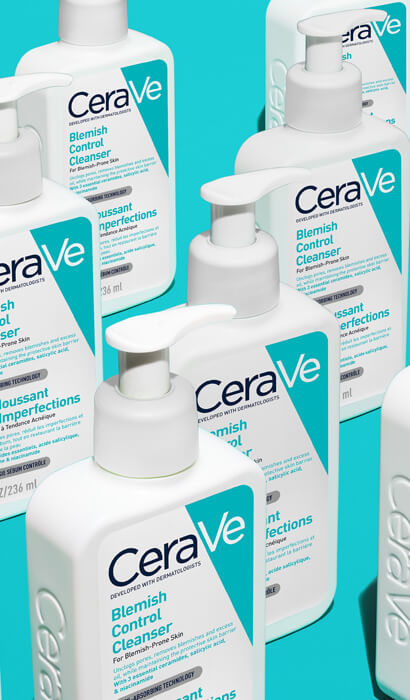
STEP 1:
Blemish Control Cleanser
Gel to foam blemish control face wash with 2% salicylic acid to target blemishes and visibly reduce blackheads.
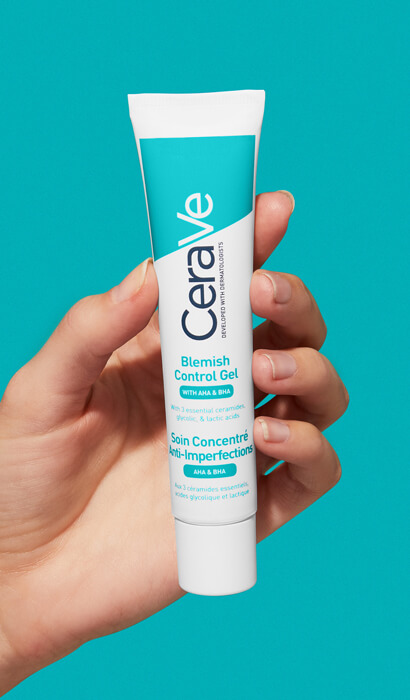
STEP 2:
Blemish Control gel
AHA/BHA gel that helps target blemishes and helps prevent future breakouts with 2% salicylic acid
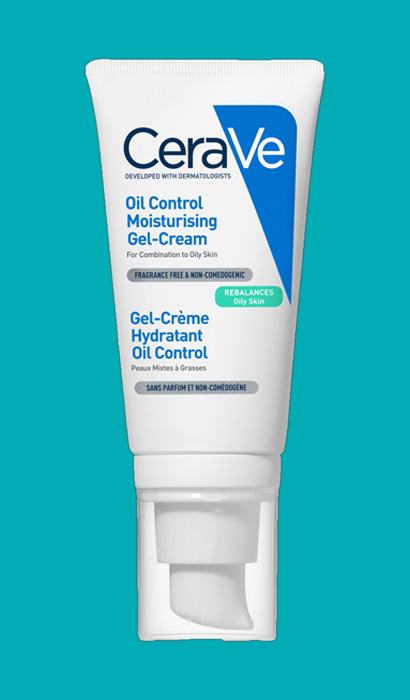
STEP 3:
Oil Control Moisturising Gel-Cream
Lightweight moisturising gel-cream with oil absorbing technology.
BLEMISH CONTROL RANGE
Facts About Blemishes: Frequently Asked Questions
-
What causes blemishes?
As we mentioned earlier, blemish-prone skin can develop when your pores become clogged with sebum, dead skin cells, and (in some cases) bacteria. If you have oily skin or a family history of blemish-prone skin, you may be more likely to experience this skin concern. Other factors that can contribute to or worsen blemishes include humid weather conditions, hormonal fluctuations, and improper skincare practices (like picking at your skin).
Using greasy, pore-clogging cosmetics can also lead to breakouts in some cases. . Of course, these aren’t all of the causes of blemishes. Mild acne-prone skin is a complex skin concern and it can be influenced by a wide range of internal and external factors.
-
Can you get pimples from stress?
It’s not your imagination: Being stressed out can impact your skin. While it is not a direct cause of blemishes, stress can act as a roadblock to achieving clear skin. When your body is under stress, your skin can subsequently produce excess oil. And, as we touched upon earlier, excess oil can clog pores and lead to an increase in blemishes.
-
What are the main types of blemishes?
There are several different types of blemishes, but some of the most common types include blackheads, whiteheads, and pimples. Blackheads and whiteheads, develop when your pores become clogged with oil and dead skin cells. If the pore is open, the contents will oxidise, leading to a blackhead. If the pore is closed, a whitehead will develop.
-
Can I have blemishes as an adult?
You may think of blemish-prone skin as an adolescent skin concern, but the truth is, anyone can experience blemishes. So, if you’re breaking out well past your teenage years, don’t fret: You’re not alone. If you’re struggling to get your adult blemishes under control, consider consulting a health care professional for help.
-
What ingredients are best for managing blemish-prone skin?
One of the most common ingredients in skincare products for blemish-prone skin is salicylic acid. Salicylic acid is a beta-hydroxy acid that offers gentle exfoliation and helps improve the appearance of, blackheads and whiteheads. This ingredient can be found in CeraVe’s gentle yet effective products for blemish-prone skin. If you’re unsure which is right for you, a health care professional should be able to steer you in the right direction.
-
Why do I have dark spots after myblemishes fades?
Dark spots can appear after blemishes and these spots are particularly common amongst those with darker skin tones. They can make achieving even-looking skin feel like a challenge—especially since they often take a long time to fade
To help with the process, consider adding CeraVe Resurfacing Retinol Serum to your nightly skincare routine. Formulated with encapsulated retinol, brightening licorice extract, and three essential ceramides, this gentle formula helps promote a more even complexion while supporting your skin’s moisture barrier.
-
Does popping a spot make it worse?
When you have a big, spot, it can be really tempting to pop it. But doing so may do more harm than good. Not only does popping your pimples make you more likely to develop post-blemish marks, but it can also worsen your skin, as the bacteria from your fingers can spread to your skin. Instead, address blemishes with a gentle spot treatment, such as CeraVe’s alcohol-free Blemish Control Gel. Apply a thin layer to clean, dry skin one to three times daily for visibly clearer skin.
